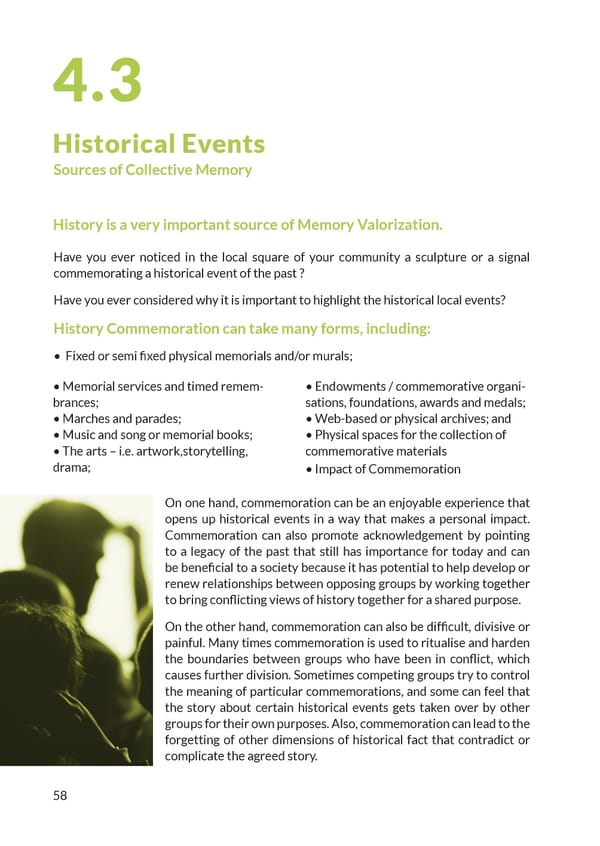4.3 Historical Events Sources of Collective Memory History is a very important source of Memory Valorization. Have you ever noticed in the local square of your community a sculpture or a signal commemorating a historical event of the past ? Have you ever considered why it is important to highlight the historical local events? History Commemoration can take many forms, including: • Fixed or semi fixed physical memorials and/or murals; • Memorial services and timed remem- • Endowments / commemorative organi- brances; sations, foundations, awards and medals; • Marches and parades; • Web-based or physical archives; and • Music and song or memorial books; • Physical spaces for the collection of • The arts – i.e. artwork,storytelling, commemorative materials drama; • Impact of Commemoration On one hand, commemoration can be an enjoyable experience that opens up historical events in a way that makes a personal impact. Commemoration can also promote acknowledgement by pointing to a legacy of the past that still has importance for today and can be beneficial to a society because it has potential to help develop or renew relationships between opposing groups by working together to bring conflicting views of history together for a shared purpose. On the other hand, commemoration can also be difficult, divisive or painful. Many times commemoration is used to ritualise and harden the boundaries between groups who have been in conflict, which causes further division. Sometimes competing groups try to control the meaning of particular commemorations, and some can feel that the story about certain historical events gets taken over by other groups for their own purposes. Also, commemoration can lead to the forgetting of other dimensions of historical fact that contradict or complicate the agreed story. 58
 MemoryHandbook new Page 57 Page 59
MemoryHandbook new Page 57 Page 59